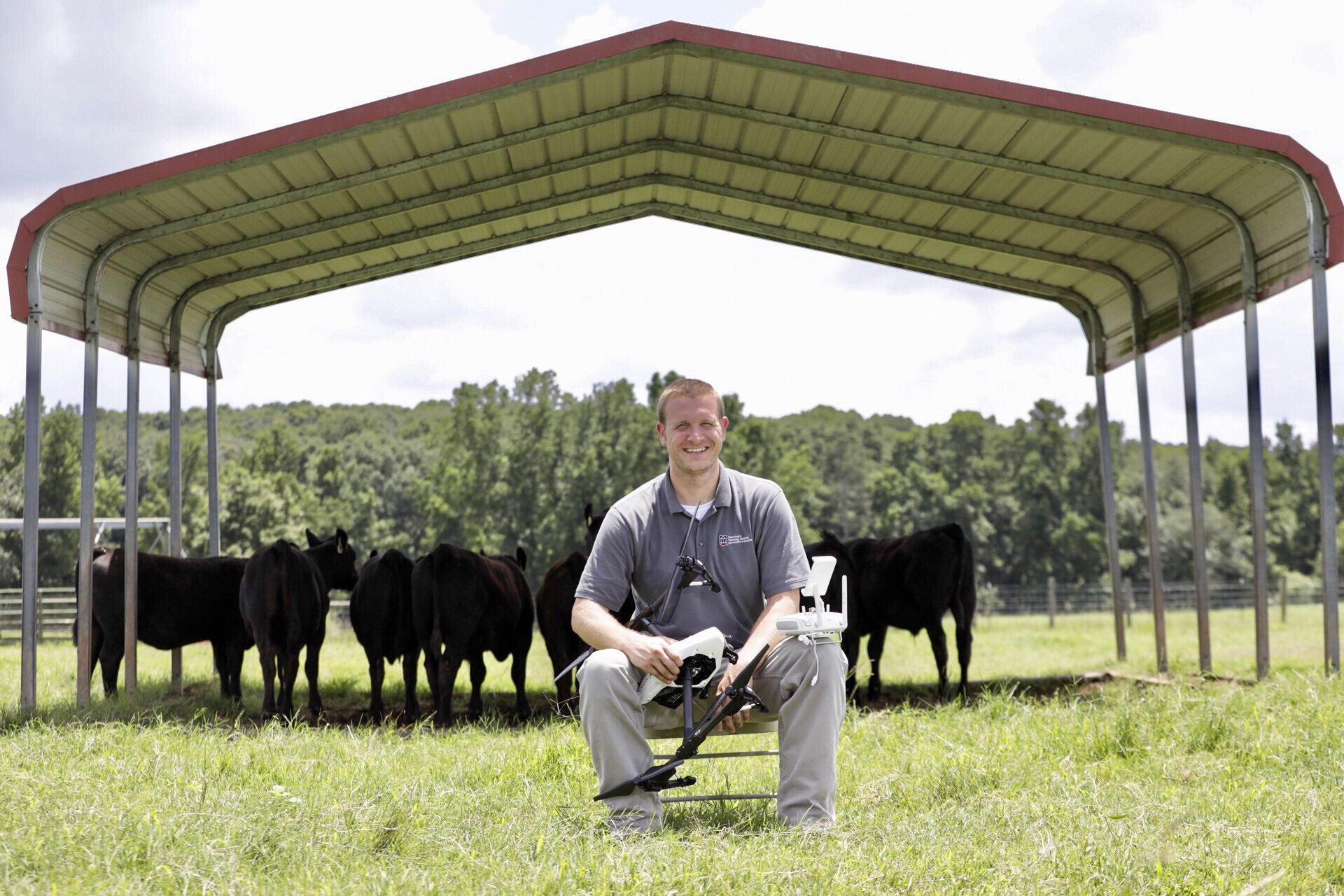If you’ve got an idea for a startup, Ian Biggs and the Innovation Gateway team can help you turn it into reality.
“Our team has a lot of commercialization experience, and we can guide you in ways that will give you the best chance of success,” said Biggs, lead for UGA’s I-Corps accelerator program and senior associate director of Innovation Gateway, which focuses on translating UGA research discoveries into products and companies.
Biggs has the numbers to back up that claim. A year ago, there were about 60 projects in the Innovation Gateway pipeline. That number has nearly doubled—to a record high of 112—and there’s a good reason for this growth.
“We’ve invested time in reaching out to faculty, staff, students, industry and the community, and we’ve made it easy to start a project,” Biggs said. “That generated a huge increase in the number of early-stage projects.”
In the pipeline now are such projects as a drone that can detect illness while flying over a herd of animals, a catheter holder that prevents the instrument from slipping, a self-cleaning nonslip examination mat for veterinarians, a game to teach kids about engineering and a urine test to detect liver complications in dogs, negating the need for an MRI.
In the past, the Georgia BioBusiness Center led UGA’s startup efforts, which mostly were limited to faculty research outcomes. Despite the narrow scope, the program revealed a critical mass of entrepreneurial ambition. In 2015, UGA created Innovation Gateway to maximize commercialization opportunities by combining the intellectual property licensing and startup support units.
“The big changes have come because UGA has a wider spread of research than many universities,” Biggs said. “We have a huge range, and we will help anybody from any school.”
Now ideas come from multiple sources, including UGA’s undergraduate engineering design capstone course, as well as events such as hackathons, where students come together over a day or two to “hack” solutions to problems. And more people are involved: undergraduates, graduate students, alumni and community members, in addition to faculty.
Engineering and materials science projects can use shared resources, such as space, from either Innovation Gateway or the College of Engineering. Assessment systems, like UGA’s Idea Accelerator Program and I-Corps, which recently graduated its third cohort, help guide budding entrepreneurs through a process that can be overwhelming. Bringing all of these elements together creates synergy, Biggs said.
“We are working with UGA and external partners to create a thriving innovation and entrepreneurial ecosystem,” he said. “Instead of a linear process, we are making all of our resources available to every project. We’re taking ideas that come from a hackathon, for example, and putting them through I-Corps. Then they might move out into industry, if they’re ready, or go back through the program again if they need more time.”
There are two goals, according to Biggs: first, to assist with ideas coming out of UGA, regardless of topic or origin. This year, his team assisted with nearly 150 projects—referring some to programs like the UGA Idea Accelerator or PSO’s Small Business Development Center and working with others via Innovation Gateway channels.
The second goal is to teach the elements of “entrepreneurial thinking” that can benefit people throughout their careers, even if they never end up launching a company.
“We know that doing a startup can be a fraught experience, and for the vast majority of the people who come into the program, this is the first time they’ve done it,” Biggs said. “We will work out the best path for you to develop your idea, whatever it is.”


